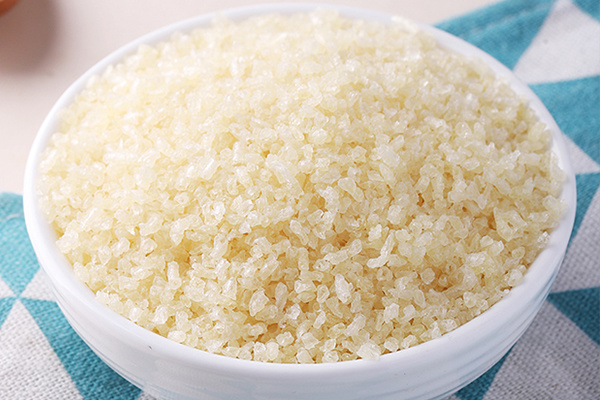Why is gelatin a sustainable product
Release time:
Jun 05,2024
Gelatin, a protein extracted from animal by-products, has a wide range of applications in food, medicine, cosmetics and other fields. It also possesses significant sustainable development characteristics. This article aims to explore the various aspects of gelatin as a sustainable product.
Firstly, gelatin production primarily relies on animal by-products such as skin, bone and connective tissue, which are often considered waste products. By converting these by-products into valuable gelatin, not only is waste generation reduced but efficient resource recycling is also achieved. Compared to traditional protein sources, the production process of gelatin has less impact on the environment. It does not require additional land or water resources for growth or breeding, thus putting less pressure on ecological balance and natural resources.
Secondly, gelatin production usually comes from animals that have already been slaughtered and whose meat and skin have been used in food or other products. Therefore, the production of gelatin does not increase the demand for animals and helps improve overall efficiency in animal utilization while supporting animal welfare. The production of gelatin can add value as an agricultural by-product providing farmers with an additional source of income. This can help support the development of sustainable agriculture and encourage farmers to adopt more environmentally friendly farming and processing methods.
Finally, the production of gelatin does not require specific plant and animal resources, which helps to reduce the dependence on and destruction of specific ecosystems. This promotes the conservation of biodiversity, making gelatin a sustainable choice. Additionally, gelatin is a natural source of protein without any artificial additives or preservatives. Its use can enhance the nutritional value of food while maintaining its natural flavor and health attributes.
With a focus on sustainability, advancements in gelatin production technology are reducing energy consumption and waste generation. This not only improves production efficiency but also drives technological innovation across the industry.
In conclusion, as a sustainable product, the production and application of gelatin align with modern environmental protection and social responsibility standards. It not only helps to reduce waste and protect the environment but also supports sustainable agriculture and animal welfare. As society continues to prioritize sustainable development, future developments in gelatin will emphasize environmental protection, health, innovation, contributing to building a greener and healthier world.

Article from the network, if there is infringement please contact delete
Related News

